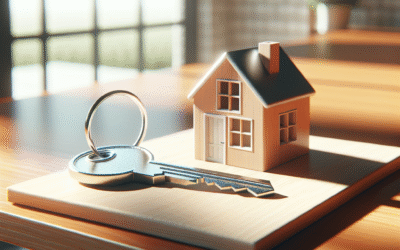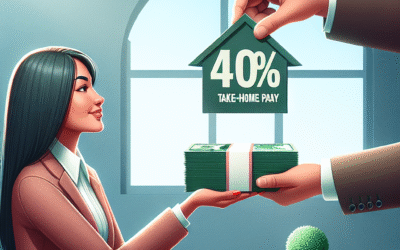When you need access to cash, a 2nd mortgage can be a viable option. This financial tool allows homeowners to borrow against the equity in their homes. In this article, we will explore what 2nd mortgages are, their types, benefits, risks, qualification criteria, and how they compare to other financing options.
What is a 2nd Mortgage?
Definition
A 2nd mortgage is a type of loan that allows homeowners to borrow money by leveraging the equity they have built in their property. It is called a “2nd” mortgage because it is subordinate to the first mortgage; in the event of foreclosure, the first mortgage must be paid off before the 2nd mortgage lender gets paid.
How it Works
When you take out a 2nd mortgage, you receive a lump sum of cash that you can use for various purposes, such as home improvements, debt consolidation, or even education expenses. The loan is secured by your home, meaning if you fail to make payments, the lender could foreclose on your property. Typically, 2nd mortgages have higher interest rates than first mortgages, as they carry more risk for the lender.
Types of 2nd Mortgages
Home Equity Loans
A home equity loan is a one-time loan where the borrower receives a lump sum. This type of 2nd mortgage usually has a fixed interest rate and fixed monthly payments over a set term. Home equity loans are ideal for homeowners who need a specific amount of money for a specific purpose, such as a major home renovation or a large expense.
Home Equity Lines of Credit (HELOC)
A HELOC is a revolving line of credit that allows homeowners to borrow against their equity as needed. It typically has a variable interest rate and a draw period, during which you can borrow and repay the funds. After the draw period ends, you enter the repayment phase, where you can no longer borrow and must start repaying the loan. HELOCs are useful for ongoing expenses, such as tuition or medical bills, as they provide flexibility in borrowing.
Benefits of 2nd Mortgages
Access to Cash
One of the primary benefits of a 2nd mortgage is that it gives homeowners access to cash without needing to sell their home. This can be particularly advantageous for those facing unexpected expenses or looking to finance large projects.
Lower Interest Rates
Compared to unsecured loans, 2nd mortgages often have lower interest rates. Because they are secured by the home, lenders offer better rates than personal loans or credit cards, making them a cost-effective way to borrow.
Risks of 2nd Mortgages
Foreclosure Risk
The most significant risk associated with 2nd mortgages is the potential for foreclosure. If you fail to make payments, the lender can take action to reclaim the property. This risk is particularly concerning if your financial situation changes unexpectedly.
Debt Accumulation
Taking on a 2nd mortgage can lead to increased debt, especially if you’re not careful with how you use the funds. If the loan is used for non-essential expenses, homeowners might find themselves in a difficult financial situation, struggling to make payments on multiple debts.
How to Qualify for a 2nd Mortgage
Credit Score Requirements
Most lenders require a good credit score to qualify for a 2nd mortgage. Generally, a score of 620 or higher is preferred, though some lenders may have more flexible requirements. A higher credit score can also help secure better interest rates.
Equity Requirements
To qualify for a 2nd mortgage, you need to have sufficient equity in your home. Lenders typically allow you to borrow up to 85% of your home’s appraised value, minus what you owe on your first mortgage. For example, if your home is worth $300,000 and you owe $200,000 on your first mortgage, you may be able to borrow up to $55,000 as a 2nd mortgage.
2nd Mortgages vs. Other Financing Options
Comparison with Personal Loans
While personal loans are unsecured and do not require collateral, they often come with higher interest rates. In contrast, 2nd mortgages are secured by your home, which usually results in lower rates. However, personal loans may be a better choice for those who do not want the risk of losing their home.
Comparison with Credit Cards
Credit cards are another option for borrowing money, but they typically have high-interest rates. If you’re considering a large purchase or need cash for an expense, a 2nd mortgage can provide a lower-cost alternative. However, credit cards offer more flexibility in repayment terms and do not require collateral.
Frequently Asked Questions about 2nd Mortgages
What is the primary purpose of a 2nd mortgage?
The primary purpose of a 2nd mortgage is to allow homeowners to access the equity in their home for various financial needs, such as home improvements, debt consolidation, or medical expenses.
How much can I borrow with a 2nd mortgage?
You can typically borrow up to 85% of your home’s equity, depending on the lender’s guidelines and your financial situation.
What are the risks of taking out a 2nd mortgage?
The main risks include the potential for foreclosure if you fail to make payments and the possibility of accumulating more debt than you can manage.
Is a 2nd mortgage a good idea?
Whether a 2nd mortgage is a good idea depends on your financial situation and how you plan to use the funds. If you have a solid plan and can manage the payments, it can be a beneficial option.
Can I use a 2nd mortgage to pay off credit card debt?
Yes, many people use 2nd mortgages to consolidate high-interest credit card debt into a single, lower-interest loan.
What happens if I can’t make payments on my 2nd mortgage?
If you cannot make payments, the lender can initiate foreclosure proceedings. This is a significant risk, so it’s essential to ensure you can manage the payments before taking out a 2nd mortgage.
Conclusion: Are 2nd Mortgages Right for You?
2nd mortgages can be a powerful financial tool for homeowners, providing access to cash and lower interest rates compared to unsecured loans. However, they come with risks, including the potential for foreclosure and debt accumulation. Before deciding to take out a 2nd mortgage, it’s crucial to assess your financial situation, understand the terms, and have a clear plan for how you will use and repay the funds. If managed wisely, a 2nd mortgage can help you achieve your financial goals while leveraging the equity in your home.
For more information on 2nd mortgages and to explore your options, consider visiting NerdWallet or Bankrate.





0 Comments